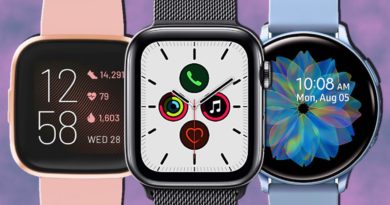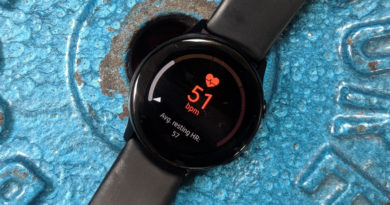Garmin Marq Athlete review
![]()
The Garmin Marq is the the company’s most interesting watch series in recent years, yet there are no groundbreaking features to laud over.
Instead, Marq represents a rather ambitious move by Garmin to break into the luxury watch market, putting itself alongside the Tag Heuers and Breitlings of this world. Garmin has sort-of dabbled or at least explored making more stylish watches before. The Fenix Chronos was a more luxurious take on its outdoor watch, which used high-grade materials and had a high-end price tag.
With the Marq though, things are different. Garmin has built five different versions of what it calls its ‘modern tool watch’ which all encompass high grade watch materials and house the best of the company’s sports and smartwatch features.
Prices for the various Marq watches range from £1,399.99 to £2,249.99. The Fenix 5X Plus, Garmin’s most expensive Fenix in comparison, costs £999.99, so it’s a significant jump up in price.
We’ve been living with the Marq Athlete, the more running-focused Marq model, to find out if Garmin can justify the price of this souped-up Fenix. Here’s our full verdict.
Garmin Marq Athlete: DesignDesign is an important aspect of any smartwatch or sports watch we get our hands on, but especially so with the Marq. After all, Garmin wants you to feel like you have an exceptional watch that will people will cast an envious eye on.
Essential reading: Best hybrid smartwatches to buy right nowGarmin Marq key specsAvailable in five models: Aviator, Driver, Captain, Expedition and AthleteTitanium casing with sapphire crystalAlways-on displayGPS and heart rate monitorTracks activities like running, cycling and swimmingBuilt-in music storage, Garmin Pay and notification supportBattery life is 12 days (smartwatch mode), 28 hours (GPS mode), 48 hours (UltraTrac mode)
The Marq comes in five watch models, all based on the five main divisions at the company. There’s the Aviator, Driver, Captain, Expedition and lastly the Athlete – the one we’re testing here. Garmin told us it decided not to collaborate with watchmakers to build the Marq watches, so has it fared going it alone? We’d say pretty good on the whole.
With the Athlete you’re getting 46mm-sized watch with a titanium casing and bezel, a dome sapphire crystal lens and 22mm interchangeable straps. Those are the same kind of materials you’ll find on the Fenix 5X Plus with a casing that’s 1mm bigger than the standard Fenix 5 Plus. There are also five metallic physical buttons dotted around the watch case, with a nice yellow accent on the start button.
The Athlete’s most unique design feature (that you won’t find on other Garmin and Marq watches) is the big bezel that has the added function of indicating your VO2 Max and recovery. It’s a nice addition, although it only works when paired with analogue watch faces. It makes sense, after all it has the feel of a sporty analogue watch. But if you have a preference for those digital watch faces, then the extra bezel functionality is redundant.
So that’s what it looks like, but was it actually like to wear day-to-day? We actually enjoyed wearing it a lot. Its Fenix-like stature didn’t look too bulky or weigh heavy on our skinny wrists, and we had plenty of compliments about this attractive-looking sports watch. But (it’s a big but), there is one thing that breaks the illusion that this is a really luxurious watch – the screen.
It’s the very same 1.2-inch, 240 x 240 resolution transflective display you’ll find on the Fenix 5X Plus. So you can expect the same in the way of quality and visibility. This screen technology helps preserve battery life so you’re not charging as regularly as an Apple Watch or one of Google’s Wear smartwatches. But when you look down at it, you can’t help thinking you’re just wearing a slightly fancier Fenix. It’s not a poor quality screen by any stretch any of the imagination, and you do have the option to crank up the brightness, but it’s not something you’d expect to find on a watch that costs over £1,000.
It’s a shame really, because everything else about this watch screams quality. It’s just let down by a screen that doesn’t really fit the bill for us. Garmin hasn’t scrimped on the materials used to construct this watch and other Marq models. Is the Marq a watch that feels comparable to a Breitling or a Tag? In many ways, but not when it comes to the screen.
Garmin Marq Athlete: Sports trackingThe Marq sits at the very top of Garmin’s wearable range, so that means all the good stuff you’ll find on the watches below it can be found here and more. You can track sports activities like running, cycling, golf, skiing and swimming. There’s also all-day activity tracking onboard too including sleep monitoring and stress tracking.There’s the same outdoor mapping and navigation features, gym modes, tactical features and safety and tracking support as the Fenix as well. You’re also getting largely the same training insights and analysis features. All of the data and tinkering with settings you can’t already do on the watch is done inside the very same Garmin Connect app that Fenix and Forerunner watches use. There’s nothing new to report in terms of that experience.
But it takes a bit of time to get used to what everything does. There’s shortcut buttons to push you into all of the many menu and settings, and if you haven’t used one of Garmin’s more advanced watches, it might feel overwhelming to taking everything in.
On top of those core features, there are extras that are only available on each Marq model. So, sailing-centric features will not be available on the Marq Driver, for instance. The Captain is able to play nice with systems built into sailing boats. Key data such as current wind speed, temperature and tide information can be displayed in real time on the watch.
Read this: What the pulse oximeter in your wearable doesFor other models, like Marq Expedition, you’ll get TOPO mapping and extra compatibility with satellite communicators to make it a better fit for adventurers. The Marq Driver pre-loads famous race tracks and lets drivers keep track of lap times. For the Athlete though, it seems a bit more threadbare and actually, design aside, it lacks those really big software extras. These Marq model-centric features aren’t going to be massively useful to the everyday watch-wearer, but if you’re a sailor, driver or serious adventurer, you might have more reason to splash out to get them.
In typical Garmin fashion, the sports you can track is seemingly endless and we’ve managed to test a bunch to see just what they’re like.
RunningRunning compared: Marq Athlete (left) and Forerunner 945 (centre)First up is running. Indoor and outdoor running modes are supported while advanced running metrics can be unlocked with an additional accessory, whether it’s Garmin’s own Running Dynamics Pod or something like Stryd.
We logged training runs, treadmill runs and races, and we were very happy with the Athlete’s accuracy. It’s also a nice watch to run with – not too heavy or bulky –and there’s all the satellite support you could want. The screen is a good size for digesting all that data too.
Above is a screenshot sample of a run compared with the Forerunner 935. There are some differences in the data, most notably in calories burned and elevation gain. But our running experience with the Marq was in line with what you get from its Forerunner watches. It’s going to satisfy every runner, from the most basic to the most data-hungry.
Running is where we also focused our heart rate testing, and we found Garmin’s Elevate heart rate sensor technology to be comparable to the company’s other watches. For most activities, it’s going to be fine, but for the best accuracy we’d still suggest grabbing a heart rate monitor chest strap.
Trail runningWe also put the Marq to the trail running test and it was more of the same. Like the Fenix, you get that extra layer of additional outdoor data like elevation and temperature data. The main things we wanted to know was if the more luxurious design was able to withstand the tougher terrain and if the screen offered good visibility. Thankfully it passed those two tests and we’d confidently hit the trails again in the safe knowledge that this watch can withstand a few knocks.
HikingHiking compared: Marq Athlete (left) and Forerunner 945 (right)Next, we slowed things down for a big long hike. We were a little less concerned about pace and more interested to see if the Athlete could deliver reliable elevation and temperature data.
We took it hiking alongside the Forerunner 945, which shares similar features to the Athlete and we were happy to see that elevation, distance and temperature information along with mapping data was near identical. The Athlete posted a slightly different elevation data, but not enough to concern us.
Swimming
Last up was swimming. We’ve generally had a very good experience swimming with Garmin watches in the past and it’s more of the same with the Marq. You’ve got a nice big screen that offers decent visibility underwater and with no touchscreen, along with those nice big, tactile physical buttons to switch data screens.
The Athlete tracks swimming in the pool, open water swimming and even swimruns, but our testing focused on swimming indoors. Compared to the Coros Vertix watch and the Form smart swimming goggles, the Athlete had no problem tracking lengths and giving us that extra hit of swim metrics in the Connect app.
Garmin Marq Athlete: Smartwatch featuresGarmin’s smartwatch powers continue to improve over time and you’re getting the best of what Garmin has to offer with the Athlete. It’s still compatible with iOS and Android phones offering Bluetooth, ANT+ and Wi-Fi connectivity. So you have the ability to connect external devices like heart rate monitors and Garmin’s Running Dynamics Pod for that additional hit of advanced running metrics.
There’s smart notification support, Garmin Pay for contactless payments and on-board music storage – including the ability to store offline playlists from music streaming services like Spotify. The 32GB onboard storage is double the amount you get on the Fenix 5 Plus series, giving you space for around 1,000 more tracks. One thing you do not get is any LTE connectivity, despite Garmin rolling out the feature earlier this year on the Vivoactive 3 Connected by Verizon.
As a smartwatch, the Marq Athlete performs really well. The same improvements Garmin made to the UI on its newest Forerunner watches rolls out here too to make screens and widgets easier to read. There’s a good amount of room to read a notification, see a calendar appointment and view weather forecasts. Garmin Pay was nice and easy to set up and like payment support on rival watches, is a feature we really enjoy using. There’s nothing new to report in terms of music features; it’s a very similar experience to what we’ve found on Garmin’s other music-supporting watches.
Essential reading: Garmin Connect IQ in-depth guideYou of course have the added ability to download apps, widgets, data fields and additional watch faces from Garmin’s Connect IQ app store. Garmin has recently given its storefront a much needed revamp and now has it’s own standalone smartphone app. Because the Marq at its heart is a lot like the Fenix, you’ll find a decent number of apps, widgets etc will work on the pricier sports watch too.
Garmin Marq Athlete: Battery lifeThe Marq Athlete tends to match the Fenix 5 Plus for battery life. You can expect up to 12 days in smartwatch mode, up to 28 hours in GPS mode (10 more hours than the Fenix), up to 9 hours with GPS and music streaming in use and it matches the Fenix for offering up to 48 hours in UltraTrac mode.
In our time with it, that pretty much seems to be on the money, but there are some features that we found can really hammer that battery life in a pretty detrimental way. The SpO2 sensor for instance, which you are warned will drain battery life, really suck suck power. It’s been the main culprit on many occasions we’ve noticed we’re running low on battery. Much like we found on the Forerunner 245 Music, music can also hammer the battery life.
If you’re using the core sports tracking features, you’re going to get that battery performance from the Marq. Just be wary that some features like the ones we mentioned can have an impact.
(Some of the testing for this review was carried out at this year’s Love Trails Festival)
Garmin Marq Athlete
By Garmin
The score we’ve given the Marq Athlete doesn’t reflect how it performs as a watch. It does everything you’d expect it to do well and it does look great. The problem is that it feels hard to justify paying more than the price of Garmin’s already-expensive Fenix 5 series model, just because it has a more unique design. That screen is a bit of deal breaker when Garmin is billing this as a luxury watch, but if it can find way to match up the Marq with a more impressive screen, it would make a huge difference.
Lovely design
Packed with features
More storage for music/apps
Best of what Garmin watches can offerThat screen just doesn’t feel luxury
Some battery sapping features
More unique features on other Marq watches
That price


